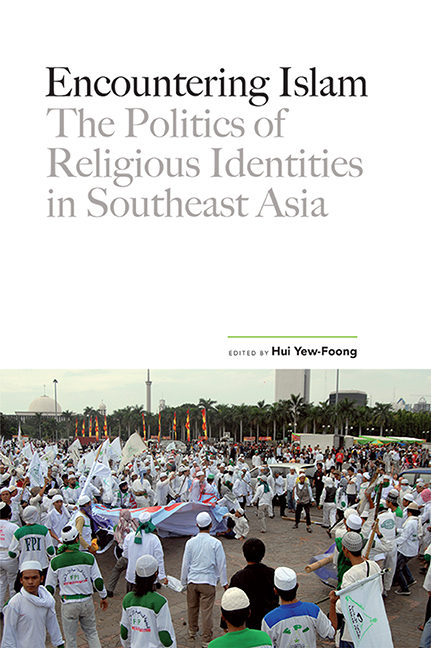Book contents
- Frontmatter
- Contents
- Acknowledgements
- Contributors
- Part I Introduction
- Part II Islam across Borders
- Part III Malaysia
- Part IV Indonesia
- 8 Natsir and Sukarno: Their Clash over Nationalism, Religion and Democracy, 1928–1958
- 9 Religious Freedom in Contemporary Indonesia: The Case of the Ahmadiyah
- 10 Religion and the Politics of Morality: Muslim Women Activists and the Pornography Debate in Indonesia
- Part V Muslim Minorities
- Index
10 - Religion and the Politics of Morality: Muslim Women Activists and the Pornography Debate in Indonesia
from Part IV - Indonesia
Published online by Cambridge University Press: 21 October 2015
- Frontmatter
- Contents
- Acknowledgements
- Contributors
- Part I Introduction
- Part II Islam across Borders
- Part III Malaysia
- Part IV Indonesia
- 8 Natsir and Sukarno: Their Clash over Nationalism, Religion and Democracy, 1928–1958
- 9 Religious Freedom in Contemporary Indonesia: The Case of the Ahmadiyah
- 10 Religion and the Politics of Morality: Muslim Women Activists and the Pornography Debate in Indonesia
- Part V Muslim Minorities
- Index
Summary
In late 2008, Indonesia's parliament passed a law against pornography. The debate was short, because the bill had already been thoroughly discussed and revised in committees and a majority of legislators had agreed to support it. Prior to the vote, however, nearly a hundred legislators opposed to the bill stormed out of parliament in protest. The ratification of the legislation Rancangan Undang-Undang Pornografi, or RUU Pornografi as it is commonly known, marks the end of one of the many bitter public controversies that have preoccupied Indonesians since the collapse of the authoritarian Soeharto regime in 1998.
At a time when Indonesia is still in the process of political and social flux, the recent debates over issues such as pornography entail competing ideas about how Islam should be incorporated into the nation-state. Arguments about the pornography bill, for example, revolved around whether the state should regulate the media to prevent it from disseminating images that offend Islamic norms of modesty. In this way, the debate over the role of the state in regulating images or behaviour was also a debate about the extent to which the state's actions should be guided by religious, in this case Islamic, ideologies. These controversies are moral debates, in that they involve arguments about individual or collective rights vis-à-vis the state, as well as struggles over what constitutes an ideal society, which are often informed by religion.
Gender ideologies are a profound, but often underappreciated aspect of moral debates. The Indonesian debates about pornography not only involve competing ideas about rights and freedoms, but also about how bodies, particularly those of women, should be seen in public. Feminist scholars have argued that moral debates such as the one over pornography reflect attempts to define collective identities and to shape the gender structure of society (Yuval-Davis 1997). And in the case of Indonesia, such debates are also part of a continuing process of struggle over the relationship between religion and public life (Brenner 2011; Rinaldo 2011).
- Type
- Chapter
- Information
- Encountering IslamThe Politics of Religious Identities in Southeast Asia, pp. 247 - 268Publisher: ISEAS–Yusof Ishak InstitutePrint publication year: 2012

